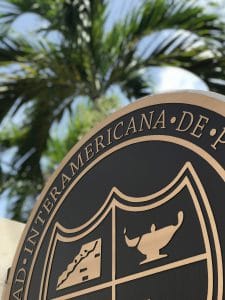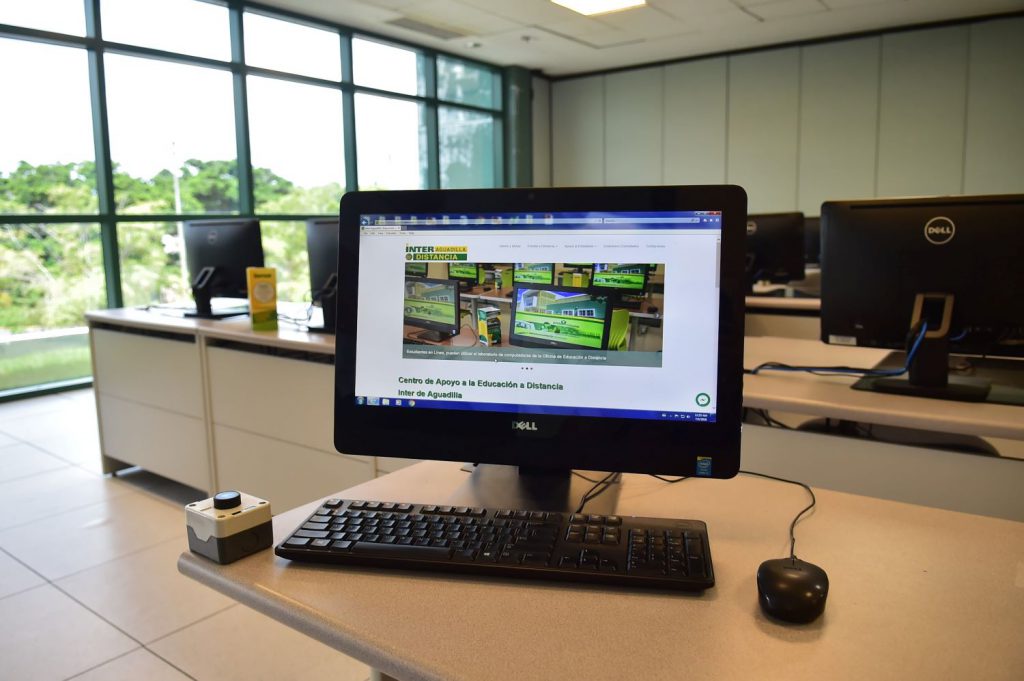Misión y Visión Upward
 Mejorar el rendimiento académico de los estudiantes de escasos recursos económicos y bajo aprovechamiento en las áreas de español, inglés, matemática, ciencia y computadora de las escuelas tributarias del programa.
Mejorar el rendimiento académico de los estudiantes de escasos recursos económicos y bajo aprovechamiento en las áreas de español, inglés, matemática, ciencia y computadora de las escuelas tributarias del programa.
 Mejorar el rendimiento académico de los estudiantes de escasos recursos económicos y bajo aprovechamiento en las áreas de español, inglés, matemática, ciencia y computadora de las escuelas tributarias del programa.
Mejorar el rendimiento académico de los estudiantes de escasos recursos económicos y bajo aprovechamiento en las áreas de español, inglés, matemática, ciencia y computadora de las escuelas tributarias del programa.
 Es un Proyecto subvencionado con fondos federales del Departamento de Educación de los Estados Unidos bajo Titulo IV, como parte de los Programas TRIO y regulados por el EDGAR y tiene su sede en la Universidad Interamericana de Puerto Rico, Recinto de Aguadilla. El objetivo del Programa es mejorar el rendimiento académico de los estudiantes (de noveno a cuarto año de escuela superior); en las áreas de español, matemática, ciencia, inglés y uso y manejo de la tecnología.
Es un Proyecto subvencionado con fondos federales del Departamento de Educación de los Estados Unidos bajo Titulo IV, como parte de los Programas TRIO y regulados por el EDGAR y tiene su sede en la Universidad Interamericana de Puerto Rico, Recinto de Aguadilla. El objetivo del Programa es mejorar el rendimiento académico de los estudiantes (de noveno a cuarto año de escuela superior); en las áreas de español, matemática, ciencia, inglés y uso y manejo de la tecnología.
Además, el programa ayuda a los estudiantes a mantenerse motivados hacia sus estudios y a desarrollar liderazgo, por medio de experiencias educativas, actividades culturales y sociales.
La meta es ofrecer toda la ayuda necesaria para que el estudiante aumente su interés en los estudios, su personalidad logre cambios positivos y prosiga con éxito sus estudios universitarios.
Ivonne Acevedo Echevarría
Directora
E-mail: iacevedo@aguadilla.inter.edu
Ext. 2771
Mayte Flores Domenech
Asistente Administrativo
E-mail: mflores@aguadilla.inter.edu
Ext. 2769
Vacante
Consejero Profesional
E-mail:
Ext. 2766
Vacante
Consejero en Rehabilitación
E-mail:
Ext. 2767
Nicole L. Pérez Hernández
Coordinadora Académica
E-mail: nperez@aguadilla.inter.edu
Ext. 2770
Xavier Rodríguez Nieves
Técnico de Computadoras
E-mail: xrodriguez@aguadilla.inter.edu
Ext. 2768
Horario de Servicio
Lunes a Viernes
8:00am – 12:00md @ 1:00pm – 5:00pm
Tel. (787) 891- 6475
Estimados estudiantes:
El personal del Programa Servicios Educativos está comprometido con usted para ayudarle a alcanzar sus metas académicas. Contamos con un excelente grupo de tutores que les ayudará a clarificar dudas, hacer asignaciones y repasos de los cursos que esté tomando. Además, podrá hacer los Laboratorios Virtuales en el Centro de Desarrollo Académico (Laboratorio de Computadoras) de los cursos de español, inglés y matemáticas. Las tutorías se ofrecen de forma grupal e individual para brindar un servicio efectivo y de excelencia académica al estudiante.
Pase por nuestra oficina para recibir los horarios disponibles de tutorías y el calendario de actividades del semestre. Así se enterará de todos los eventos, servicios y ayudas que tenemos para usted.
Eres importante para nosotros y reconocemos que una vez completes tu carrera universitaria, serás un profesional que aportará al desarrollo de nuestro país.
Nicole L. Pérez
Coordinadora Académica
Programa Servicios Educativos
Horarios de Tutorías
En el Programa Servicios Educativos estamos conscientes de los retos económicos que confronta la población estudiantil. La educación financiera es un aspecto esencial para alcanzar el éxito en la vida universitaria. Por esta razón, ofrecemos a nuestros estudiantes información y orientación sobre planificación financiera y asistencia económica. Estos servicios incluyen talleres y conferencias sobre la elaboración de presupuesto y el buen manejo del crédito. Además, brindamos información relacionada a becas y oportunidades de estudio y trabajo.
Los servicios de Consejería Profesional del Programa Servicios Educativos están dirigidos a promover el desarrollo integral del estudiante ofreciendo:
Consejería Educativa/Académica: Incluye
Consejería/Educación Financiera: Incluye
Planificación de Carreras: Incluye
Coaching Académico:
Consejería Individual: Incluye
Orientación sobre Escuelas Graduadas:
Accede a Blackboard utilizando el siguiente link:
https://us.bbcollab.com/collab/ui/session/guest/b2fdc2727c9e456f8e428cbab20748fe
IMPORTANTE
Si NO tienes acceso a Blackboard o Inter-net podrás llamar al:
1-571-392-7650 e ingresa este PIN: 823 791 7197
Componente Verano – los estudiantes interesados recibirán:
Componente Regular – Año Académico